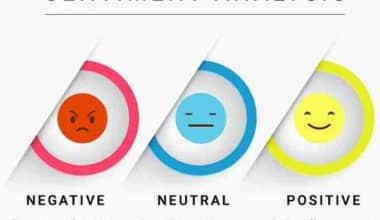A call center is a centralized division that accepts and declines calls from customers, both present and potential. Depending on the organization, call centers may be located there or may be outsourced to another company that specializes in answering phone calls. They can use a set of tools called call center software to benefit from the numerous modern communication channels. The good news is that you can overcome training challenges and put in place a successful training program with the help of call center training software.
We’ll cover everything you need to know about call centers in this article.
Call Center
A call center is a group of customer service representatives who assist in answering phone calls from clients who have inquiries about a business’s products or services. Call centers must always provide a high level of service to foster relationships because they are crucial to delivering a positive customer experience. This implies that in their interactions with clients, call center agents need to be informed, kind, and accommodating.
Call centers are used by online retailers, telemarketing firms, help desks, mail-order businesses, polling services, charities, and any sizable business that sells goods or provides services over the phone.
How Does the Call Center Work
Call centers employ representatives who take incoming calls from various companies. Each business creates unique call flows and agent scripts to cater to the needs of its clients. When calls come in, agents answer them while consulting their screens for scripts, consulting company FAQs, and routing calls to your team.
Types of Call Centers
#1. Inbound Call Center.
Inbound call representatives may field calls from current or potential clients regarding account management, scheduling, technical support, complaints, questions about goods or services, or intentions to purchase the business.
These call centers typically handle a lot of calls at once before screening and forwarding. After taking calls and using speech recognition software to generate automated messages in response to customer inquiries, an automated call distributor (ACD) or interactive voice response (IVR) system can direct calls to the appropriate customer service agents or recipients.
#2. Outbound Call Center.
In these call centers, an agent calls on behalf of the business or client to carry out tasks like lead generation, telemarketing, customer retention, fundraising, surveying, debt collection, or appointment scheduling. To increase productivity, an automated dialer can place the calls and, once the caller connects, use an IVR system to transfer the caller to an available agent. Furthermore, to prevent telemarketing calls, individuals can add their phone numbers to the National Do Not Call Registry, which outbound call centers must follow.
#3. Automated Call Centers
Automated call centers manage caller responsibilities using computer-based systems. Due to the elimination of the need for human call management, having this computerized capability can assist a business in reducing costs.
#4. Virtual Call Centers
A virtual call center is a remote-based business that uses the cloud. These center setups are significantly less expensive to run and allow staff members to work remotely. Customer service agents typically use call center software, which provides them with access to cloud messaging, email, and calling, rather than landlines.
Call Center Service
Inbound call answering is only one aspect of a great call center. Call centers can help resolve problems, provide information, and open up new sales opportunities for businesses, in addition to ensuring that clients can speak with a live receptionist. It is a crucial part of your customer service plan. The outcome for your business can depend in large part on it.
#1. Ring Central
Using RingCentral, small businesses can quickly and amicably answer all incoming calls. VoIP services from RingCentral are available, including both single-level and multi-level auto-attendants. With this VoIP solution, you can cut costs while maintaining high customer satisfaction. RingCentral provides the best-automated service with a dial-by-name directory and an easy-to-use phone tree editor.
The following packages are based on monthly payments for businesses with two to ten employees:
- The essentials include a single-level auto-attendant, presence data, call park, team document sharing, and call flip for $29.99 per user, per month.
- Standard: $37.99 per user, per month, for up to 100-person video meetings, on-demand call recording, and a multi-level auto-attendant.
- Call barge and whisper, call recording automatically, and up to eight-digit extensions for companies with multiple locations are available for $44.99 per user, per month.
- Ultimate: $59.99 per user, per month for device status reports and alerts along with limitless cloud storage
#2. Davinci
Utah-based Davinci provides live answering services and has meeting rooms, coworking spaces, and virtual business addresses. Businesses looking for auto-attendant and live support for a single inexpensive monthly fee can find the best live and automated combination with Davinci. On weekdays from 8 a.m. to 8 p.m. Eastern Time, Davinci takes your calls.
Your auto-attendant answers call outside of business hours and can direct them to your staff, your voicemail box, or the free voicemail offered by the Davinci service.
Plan options for a virtual live receptionist include:
- Business 50: $129 per month for up to 50 live answer minutes
- Up to 100 live answers, and minutes cost $239 per month for businesses.
- For 50 live answer minutes with Premium 50, you must pay $249 per month.
- For up to 100 live answer minutes per month with Premium 100, pay $319.
#3. Signius Communications
For small businesses, Signius Communications provides support that is entirely based in the United States. Signius Communications offers the best call center services overall with affordable monthly plans and support for multiple industries.
They assist your business in managing routine tasks, emergency services, or overflow calls during busy periods. Through the online portal, you can view your messages as well as information about your call types, repeat calls, average call duration, and minute usage. There are three plans available, and if your business requires more minutes, Signius Communications will work with you to create a special plan. These are some of the packages:
- For starters, pay $42 per month for 0 minutes, plus $1.22 for each additional minute.
- Pro: For 125 minutes per month, it costs $158 plus $1.15 for each additional minute.
- Premier: $263 monthly for 225 minutes plus $1.13 for each additional minute
Call Center Headsets
Computers and headsets are the two essential pieces of technology that call centers need the most. For customer service representatives to speak clearly and be understood by customers, they must have access to computers and dependable headsets. For remote customer service agents to reliably access the call center software of their companies, they may also need improved internet access, so businesses might want to invest in home networking hardware for them.
Call Center Software
It’s a system that enables companies to manage various channels of communication, including social media, live chat, instant messaging, SMS text messages, and phone calls. To assist agents in responding to customer inquiries and resolving issues, it can be used as a component of customer support or help desk software with a ticketing feature. Examples include the Zendesk help center, Live Agent, Just all, and RingCentral contact center.
The following are other essential call center hardware and software:
- Software for managing calls, including ACD technology;
- Software for call monitoring;
- Analytical tools for speech
- Software for managing the workforce;
- CRM software;
- IVR software;
- Outbound dialers; and
- Technologies such as chatbots or virtual assistants.
But there are many different configurations and features for call center software, including auto-dialers, monitors, call accounting solutions, call analytics, predictive dialers, computer telephony integration (CTI), interactive voice response (IVR), and automatic call distributors (ACD). Before making a purchase, it’s also critical to comprehend the distinctive features that each one offers.
Types of Call Center Software
#1. On-Premise Call Center Systems.
These are typically sold with an on-time utilization license, under which the company user is responsible for the call center’s upkeep and upgrades. These are typically the priciest call centers, but they are also the most expert, and they frequently need private branch hardware and equipment installed.
#2. Cloud-Based Call Center Systems.
The center is hosted in the cloud using SaaS models, making it accessible from anywhere without the need to download or install any software. These cloud-based systems are the most cost-effective ones.
What Does Call Center Software Do?
The platform essentially enables a company or organization to run a call center to answer clients’ questions and serve as a help desk for their issues. It opens up channels of communication for customers to use to interact and engage with your company about issues relating to your products, services, and business.
Functionalities for facilitating this two-way communication are built into call center software. You can use features like voicemail, emails, chat, conferencing, and support tickets, among others. To fully profile callers, call systems should provide integration options with CRMs, help desks, e-commerce platforms, marketing software, and chat systems.
Integrated call center software can display information about the caller’s previous purchases, voicemails, notes, cases, phone calls with the business, chat transcripts, support tickets, and other things.
How Does Call Center Software Work?
Call center software is primarily a management tool used by businesses to handle incoming calls and correspondence relating to product support or informational inquiries. To market and sell products, it is also used to place outbound calls to a specific audience.
Benefits of Call Center Software
#1. Enhanced Security.
To keep your call center operation secure and operational at all times, software, particularly cloud-based or hosted platforms, includes security features. As a result, you must choose a reputable provider who maintains the system with strong security protocols.
#2. Operational Flexibility.
Modern call center software can do much more than just manage calls and data; it is an all-in-one, out-of-the-box solution. Even new agents can use them easily because they are made to simultaneously adapt to a variety of operations. You can combine the software with your current CRM, CEM, e-commerce, marketing solution, and other apps to create a strong platform. It is also highly configurable to meet all sorts of organizational needs.
#3. Productivity Booster.
Auto-dialers, monitoring tools, time routing, prioritization, and call route matrices are just a few of the automated and intuitive features that are abundant in call center software. Each system relies on KPIs to gauge each agent’s productivity and provide real-time feedback on the effectiveness of your customer support.
#4. Improved Customer Relationships.
Providing the best customer support is the first step in enhancing customer relations. Thanks to call center software, you have the tools to deliver excellent, dependable, and timely customer service. Customers are king, and if they think their problems are being ignored, they may easily leave, which is bad for business.
Call Center Training
Customers’ interactions with customer service representatives are frequently the basis for their opinions of brands. Your agents require the proper instruction and resources to handle those calls in a way that makes the customer feel heard and valued. Here are some ideas for call center training that will assist your agents in giving customers a good, helpful experience.
#1. Teach Proper Call Center
Never underestimate the value of training call center representatives on how to conduct themselves politely and respectfully with customers. Small details can have a significant impact on the customer support experience as a customer service agent. You can equip your agents with the skills they need to make each customer feel valued, respected, and safe by teaching them proper call etiquette. And that serves as the cornerstone upon which excellent customer service is based.
#2. Provide Technical Onboarding
Ensure that the agents working in your call center are completely competent and confident in their use of the software and technology. Otherwise, a technical problem might lead to unwarranted wait times. It is imperative that your company’s call center training cover instructing agents on how to use your tools.
#3. Put in Place a Shadowing Scheme
When training an agent, setting an example can be very helpful. With the help of a shadowing program, new hires can be paired with seasoned call representatives to observe how the experts handle typical customer calls. These training sessions can be a great way for call center representatives to learn the skills necessary to handle customer issues.
#4. Tools for Knowledge Management
When your agents are on calls, make it simple for them to find answers to product questions they are unfamiliar with. Internal knowledge management tools, such as the help center software from Zendesk, enable agents to look up and find solutions to frequent support questions quickly.
#5. Set Clear Objectives
Employees risk feeling stuck in their jobs with nowhere to go if they don’t have goals to strive toward. Provide call center agents with clear goals and a variety of training opportunities, and they’ll probably feel more motivated to advance in their positions. To encourage employee engagement and improve agent performance, these goals should be combined with frequent coaching.
#6. Give Feedback
If you don’t offer feedback, agents won’t know if they’re on track to accomplish their objectives. You must comprehend where and how your agents are having difficulty providing helpful criticism. You can develop these insights by paying attention to calls. Review call recordings to evaluate the manners of the agents and pinpoint their strengths and weaknesses.
What Are the Three Types of Call Centers?
- Inbound
- Outbound
- Automated
What Are the Skills in a Call Center?
- Calm under pressure
- Attention to details
- Organizational skills
- Creativity
- Tenacity
- Flexibility
- Effective Communication skills
- Process-oriented
- Problem-solving skills
- Empathy
- Consultation
Is Call Center a Hard Job?
Although it can be very demanding, working in a call center can also be very rewarding. Virtually every day, call center employees are exposed to new information and are confronted with a variety of difficulties. One of the most difficult and stressful jobs is working in a call center.
Conclusion
To evaluate the productivity and success rates of call centers and agents, organizations should monitor key performance indicators (KPIs). Your tool for improving your help desk and increasing customer support is call center software. therefore, Call center agents are expected to go through technical onboarding and training to learn more about improving customer relationships.
Call Center FAQs
What is a Call Center ?
A call center is a centralized division that accepts and declines calls from customers, both present and potential. They are a group of customer service representatives who assist in answering phone calls from clients who have inquiries about a business’s products or services
What Are the Three Types of Call Centers?
- Inbound Center
- Outbound Center
- Automated Center
What are the Benefits of a Call Center Software?
- Enhanced Security
- Improved Customer Relationship
- Productivity Booster
Related Articles
- CUSTOMER CALL SERVICE: Duty, Quality, Types, and What to Know(
- 21 Best CALL CENTER PHONE SYSTEMS & Reviews in 2023 (Updated).
- CALL MANAGEMENT SYSTEM: How it works
- Managing Remote and On-Site Call Center Agents
- CALL CENTER SOLUTIONS: 19+ Cloud-Based Solutions for any Business (+ Reviews)
- CCaaS: Complete Guide to Contact Center as a Service






